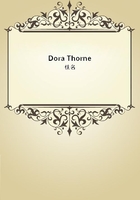
第61章
Then she saw--and it struck her with surprise how Lord Airlie, so courted and run after, sought her out. She saw smiles on friendly faces, and heard her name mingled with his.
"My dear Miss Earle," said Lady Everton, "you have accomplished wonders--conquered the unconquerable. I believe every eligible young lady in London has smiled upon Lord Airlie, and all in vain. What charm have you used to bring him to your feet?"
"I did not know that he was at my feet," replied Beatrice. "You like figurative language, Lady Everton."
"You will find I am right," returned lady Everton. "Remember I was the first to congratulate you."
Beatrice wondered, in a sweet, vague way, if there could be anything in it. She looked again at Lord Airlie. Surely any one might be proud of the love of such a man. He caught her glance, and her face flushed. In a moment he was by her side.
"Miss Earle," he said, eagerly, "you told me the other day you liked flowers. If you have not been in the conservatory, may I escort you there?"
She silently accepted his arm, and they went through the magnificent suite of rooms into the cool, fragrant conservatory.
The pretty fountain in the midst rippled musically, and the lamps gleamed like pale stars among masses of gorgeous color.
Beatrice was almost bewildered by the profusion of beautiful plants. Tier upon tier of superb flowers rose until the eye was dazzled by the varied hues and brightness--delicate white heaths of rare perfection, flaming azaleas, fuchsias that looked like showers of purple-red wine. The plant that charmed Beatrice most was one from far-off Indian climes--delicate, perfumed blossoms, hanging like golden bells from thick, sheltering green leaves.
Miss Earle stood before it, silent in sheer admiration.
"You like that flower?" said Lord Airlie.
"It is one of the prettiest I ever saw," she replied.
In a moment he gathered the fairest sprays from the precious tree. She cried out in dismay at the destruction.
"Nay," said Lord Airlie, "if every flower here could be compressed into one blossom, it would hardly be a fitting offering to you."
She smiled at the very French compliment, and he continued--"I shall always have a great affection for that tree."
"Why?" she asked, unconsciously.
"Because it has pleased you," he replied.
They stood by the pretty plant, Beatrice touching the golden bells softly with her fingers. Something of the magic of the scene touched her. She did not know why the fountain rippled so musically, why the flowers seemed doubly fair as her young lover talked to her. She had been loved. She had heard much of love, but she herself had never known what it really meant. She did not know why, after a time, her proud, bright eyes drooped, and had never met Lord Airlie's gaze, why her face flushed and grew pale, why his words woke a new, strange, beautiful music in her heart--music that never died until--"I ask for one spray--only one--to keep in memory of this pleasant hour," said Lord Airlie, after a pause.
She gave him a spray of the delicate golden bells.
"I should like to be curious and rude," he said, "and ask if you ever gave any one a flower before?"
"No," she replied.
"Then I shall prize this doubly," he assured her.
That evening Lord Airlie placed the golden blossom carefully away. The time came when he would have parted with any treasure on earth rather than that.
But his question had suddenly disturbed Beatrice. For a moment her thoughts flew to the sea shore at Knutsford. The present faded from her; she saw Hugh Fernely's face as it looked when he offered her the beautiful lily. The very remembrance of it made her shudder as though seized with deathly cold--and Lord Airlie saw it.
"You are cold," he said; "how careless I am to keep you standing here!" He helped her to draw the costly lace shawl around her shoulders, and Beatrice was quickly herself again, and they returned to the ball room; but Lord Airlie lingered by Miss Earle.
"You have enjoyed the ball, Beatrice," said Lord Earle, as he bade his daughters good night.
"I have, indeed, papa," she replied. "This has been the happiest evening of my life."
"I can guess why," thought Lord Earle, as he kissed the bright face upraised to him; "there will be no wretched underhand love business there."
He was not much surprised on the day following when Lord Airlie was the first morning caller, and the last to leave, not going until Lady Helena told him that they should all be at the opera that evening and should perhaps see him there. He regretted that he had promised Lady Morton his box for the night, when Lady Earle felt herself bound to ask him to join them in theirs.
All night Beatrice had dreamed of the true, noble face which began to haunt her. She, usually so regardless of all flattery, remembered every word Lord Airlie had spoken. Could it be true, as Lady Everton had said, that he cared for her?
Her lover would have been spared many anxious hours could he have seen how the golden blossoms were tended and cared for. Long afterward they were found with the little treasures which young girls guard so carefully.
When Lord Airlie had taken his departure and Lord Earle found himself alone with his mother, he turned to her with the happiest look she had ever seen upon his face.
"That seems to me a settled affair," he said. "Beatrice will make a grand countess--Lady Airlie of Lynnton. He is the finest young fellow and the best match in England. Ah, mother, my folly might have been punished more severely. There will no mesalliance there."
"No," said Lady Earle, "I have no fears for Beatrice; she is too proud ever to do wrong."